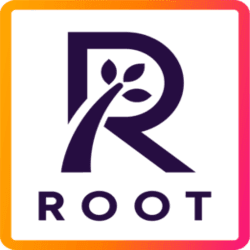Pediatric Neurological Disorders In Bozeman

Pediatric Neurological Disorders: Expert Care at Root Pediatrics
When your child faces neurological challenges, finding the right care becomes your top priority. At Root Pediatrics in Bozeman, we understand the complex nature of pediatric neurological disorders and their impact on both children and families. Our specialized team provides expert interventions designed to enhance your child’s function, independence, and quality of life.
Understanding Pediatric Neurological Disorders
Neurological disorders in children affect the brain, spinal cord, and nervous system, impacting various aspects of development and daily function. These conditions can present from birth or develop throughout childhood, affecting movement, coordination, learning, and overall development. According to recent studies, approximately 1 in 20 children experiences some form of neurological condition.
Common Pediatric Neurological Conditions
At Root Pediatrics, we specialize in treating a wide range of neurological conditions affecting children. Our evidence-based treatment approaches are tailored to each condition’s unique characteristics and challenges:
Cerebral Palsy
Cerebral palsy affects approximately 1 in 345 children in the United States. This condition impacts movement and muscle coordination due to differences in brain development or early brain injury. Children may experience varying types of muscle tone issues:
- Spastic CP causes stiff, tight muscles that limit movement
- Dyskinetic CP involves fluctuating muscle tone leading to uncontrolled movements
- Ataxic CP primarily affects balance and coordination
- Mixed CP combines different types
Our therapy programs focus on optimizing movement patterns and enhancing functional independence through targeted interventions.
Epilepsy and Seizure Disorders
Affecting about 470,000 children in the United States, epilepsy presents unique challenges for physical function and safety. Children with epilepsy may experience:
- Balance and coordination difficulties between episodes
- Muscle weakness or tightness
- Decreased endurance during activities
- Safety concerns during physical activities
Our treatment approaches emphasize safe participation in activities while building strength and coordination between seizure episodes.
Muscular Dystrophy
This group of genetic conditions progressively affects muscle strength. Different types of muscular dystrophy present at various ages and affect different muscle groups:
- Duchenne muscular dystrophy primarily affects boys and usually presents between ages 2-5
- Becker muscular dystrophy shows similar but milder symptoms
- Congenital muscular dystrophies present at birth or early infancy
Our interventions focus on maintaining muscle strength and function while adapting activities to changing abilities.
Brain and Spinal Cord Injuries
Acquired neurological injuries require specialized rehabilitation approaches. Common causes include:
- Traumatic brain injuries from accidents or falls
- Sports-related concussions
- Spinal cord injuries
- Post-infectious or inflammatory conditions
Treatment focuses on regaining function through targeted exercises and activity modification.
Neuromuscular Junction Disorders
Conditions affecting nerve-to-muscle communication, such as myasthenia gravis, require careful activity pacing and specific exercise approaches to maintain function without causing excessive fatigue.
Hereditary Peripheral Neuropathies
These conditions, including Charcot-Marie-Tooth disease, affect the nerves controlling muscles, leading to:
- Progressive muscle weakness, particularly in feet and hands
- Balance and coordination challenges
- Changes in foot structure and walking patterns
Our therapy programs emphasize maintaining function while preventing secondary complications.
Movement Disorders
Various conditions affecting smooth movement execution, including:
- Tic disorders and Tourette syndrome
- Dystonia causing involuntary muscle contractions
- Ataxia affecting coordination and balance
Treatment focuses on optimizing functional movement patterns and developing compensatory strategies.
Each condition requires a unique approach, and our experienced team at Root Pediatrics stays current with the latest research and treatment techniques. We work closely with your child’s medical team to ensure our interventions complement their overall treatment plan while focusing on functional outcomes that matter in daily life.
Signs and Symptoms of Neurological Disorders
Early recognition of neurological symptoms helps ensure timely intervention. Common signs include:
Physical Symptoms
- Unusual muscle tone (too tight or too loose)
- Balance and coordination difficulties
- Unusual movements or tremors
- Changes in walking patterns
- Weakness or fatigue
Functional Challenges
- Difficulty with daily activities
- Problems with hand-eye coordination
- Challenges in sports or physical activities
- Issues with fine motor tasks
- Limited endurance during activities
Developmental Concerns
- Delayed motor milestones
- Regression of previously acquired skills
- Asymmetry in movement patterns
- Persistent primitive reflexes
Our Comprehensive Treatment Approach
At Root Pediatrics, we believe in an integrated approach to treating pediatric neurological disorders. Our evidence-based treatments are designed to maximize your child’s potential through carefully coordinated therapeutic interventions.
1. Physical Therapy Interventions
Our specialized pediatric physical therapy programs address the fundamental aspects of movement and mobility. Each session is carefully structured to improve:
Movement and Mobility Physical therapy focuses on developing and improving essential movement patterns. Our therapists work with your child to enhance:
- Walking patterns and gait mechanics
- Balance and postural control
- Coordination during complex movements
- Strength and endurance
- Gross motor skills necessary for age-appropriate activities
Specialized Techniques We utilize various evidence-based approaches including:
- Neurodevelopmental Treatment (NDT) to optimize movement patterns
- Gait training using specialized equipment
- Balance training through dynamic activities
- Strength training appropriate for neurological conditions
- Coordination exercises integrated into play-based activities
2. Occupational Therapy Services
Our occupational therapy program helps children develop independence in daily activities while addressing the underlying skills needed for success.
Daily Living Skills
We focus on helping children master activities such as:
- Dressing and grooming tasks
- Feeding and eating skills
- Classroom and school-related activities
- Age-appropriate play activities
- Social participation with peers
Fine Motor Development
Our therapists work on enhancing:
- Hand strength and dexterity
- Tool use (writing utensils, scissors, etc.)
- Hand-eye coordination
- Bilateral coordination
- Visual motor integration
3. Play Therapy Integration
Play therapy serves as a crucial bridge between therapeutic exercises and functional skills. Our approach includes:
Structured Play Activities
We design play-based interventions that:
- Target specific therapeutic goals while maintaining engagement
- Build confidence through successful experiences
- Encourage problem-solving and motor planning
- Foster social interaction and communication
- Develop age-appropriate play skills
Therapeutic Play Equipment
Our clinic features specialized equipment designed to:
- Challenge balance and coordination
- Develop strength through play
- Enhance sensory experiences
- Promote motor learning
- Support functional skill development
4. Sensory Integration Therapy
Our comprehensive sensory integration approach helps children process and respond to sensory information more effectively.
Assessment and Intervention
We begin with detailed sensory assessments to understand how your child:
- Processes different types of sensory input
- Responds to environmental challenges
- Integrates sensory information during activities
- Uses sensory information for motor planning
- Regulates their responses to sensory experiences
Therapeutic Techniques
Our sensory integration therapy includes:
- Carefully graded sensory experiences
- Activities that challenge multiple sensory systems
- Environmental modifications for optimal performance
- Strategies for improved sensory processing
- Home program recommendations for carryover
Treatment Integration
While each therapy type has its specific focus, our team works together to ensure:
- Consistent approaches across all therapies
- Coordinated treatment planning
- Regular progress monitoring
- Family education and home program development
- Clear communication about treatment strategies
Measuring Progress
We utilize standardized assessments and functional measures to track your child’s progress:
- Regular reassessment of therapy goals
- Documentation of functional improvements
- Updates to treatment plans based on progress
- Coordination with medical providers
- Family feedback integration
Our integrated approach ensures that each child receives the most appropriate combination of treatments for their specific needs. We continuously adjust our treatment strategies based on progress and response to intervention, ensuring optimal outcomes for every child we serve.
Frequently Asked Questions
How do you evaluate children with neurological conditions? Our comprehensive evaluation process includes detailed assessment of movement patterns, functional abilities, and developmental status. We work closely with your child’s medical team to understand their diagnosis and create appropriate treatment goals.
How long will my child need therapy? Treatment duration varies based on your child’s condition, severity, and progress. We regularly reassess and adjust treatment plans to ensure optimal outcomes, with some children benefiting from ongoing therapy while others may need periodic episodes of care.
What results can we expect? While each child’s journey is unique, our evidence-based approach helps children maximize their functional potential. We focus on achievable goals and celebrate progress at every step, whether it’s improved movement, greater independence, or enhanced participation in activities.
Take the First Step
Early intervention often leads to better outcomes for children with neurological conditions. Contact Root Pediatrics today to schedule a comprehensive evaluation.
Contact Us:
- Phone: Call us at 406-219-5388.
- Online: Fill out our short form on our Request an Appointment page.
- In-Person: Stop by our clinic in Bozeman.
Schedule your child’s evaluation today and take the first step toward supporting their development and success.
Let our expert team at Root Pediatrics help your child maximize their potential through specialized neurological rehabilitation. Schedule your evaluation todayand take the first step toward optimizing your child’s function and independence.
Partnership in Care
We believe in partnering with families and medical providers to ensure comprehensive care. Our team regularly communicates with neurologists, pediatricians, and other specialists involved in your child’s care to maintain a coordinated treatment approach focused on optimal outcomes.





